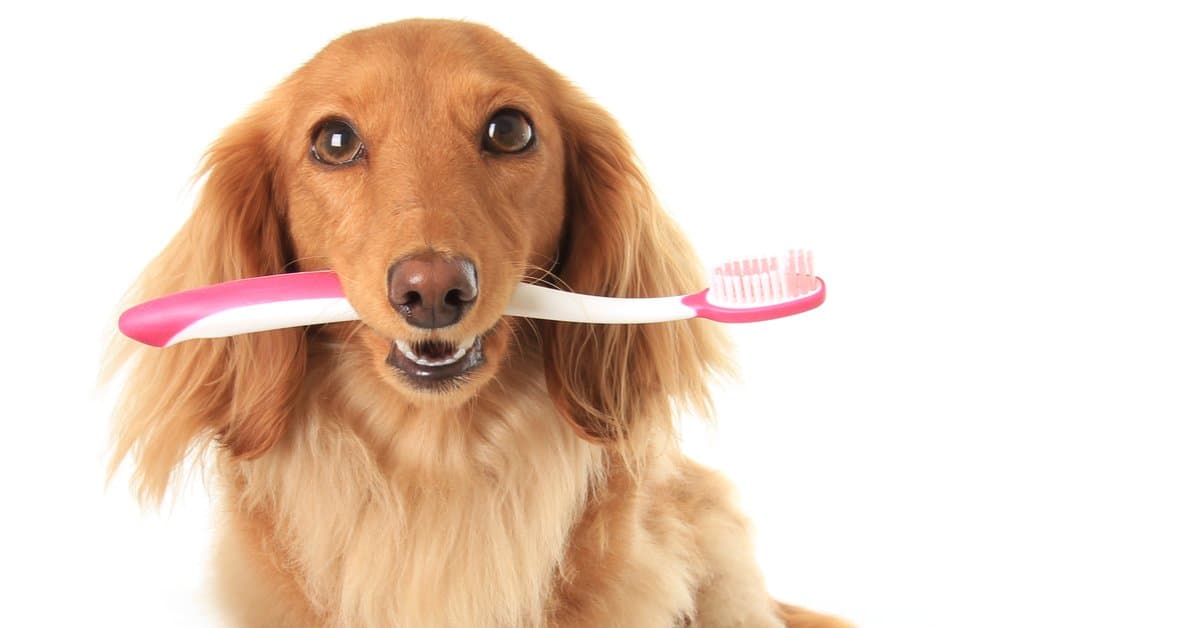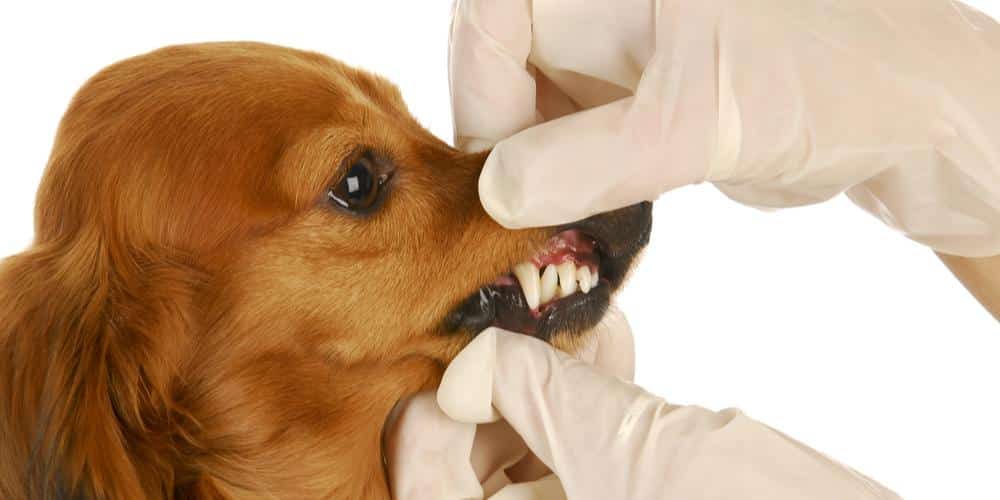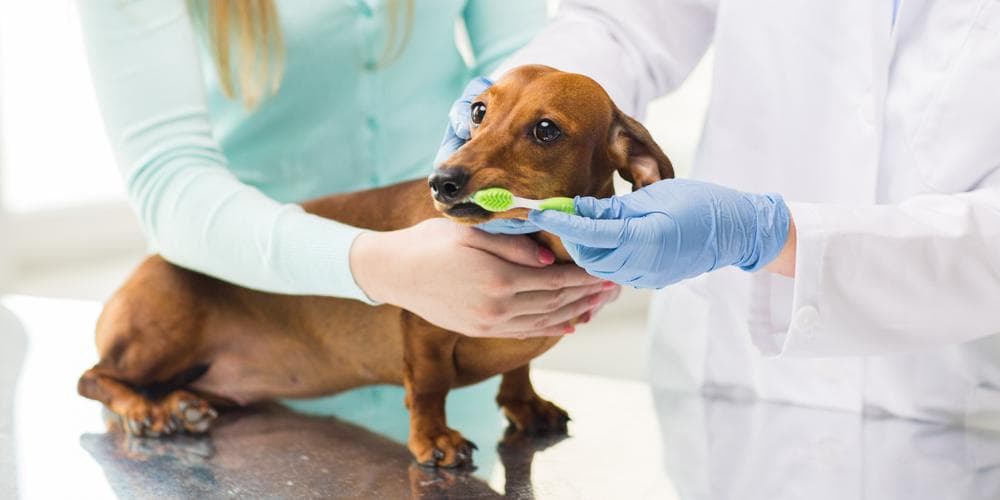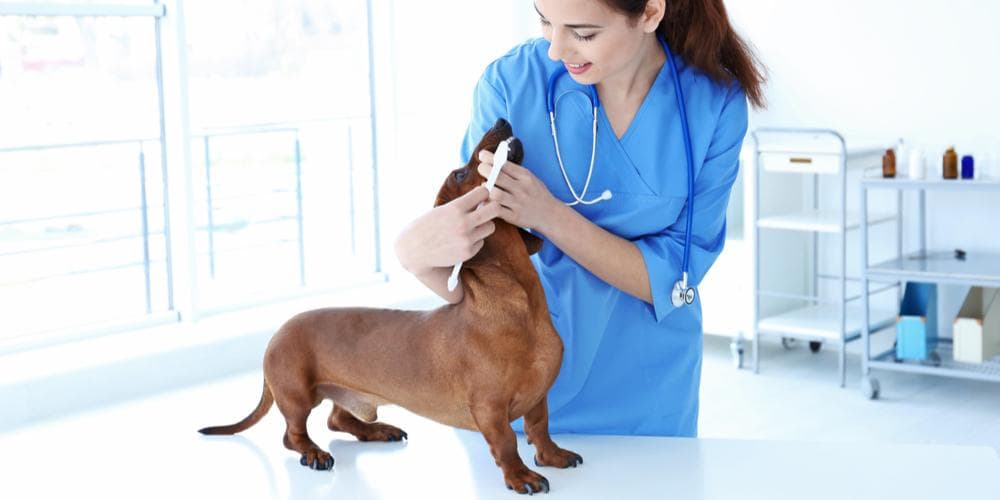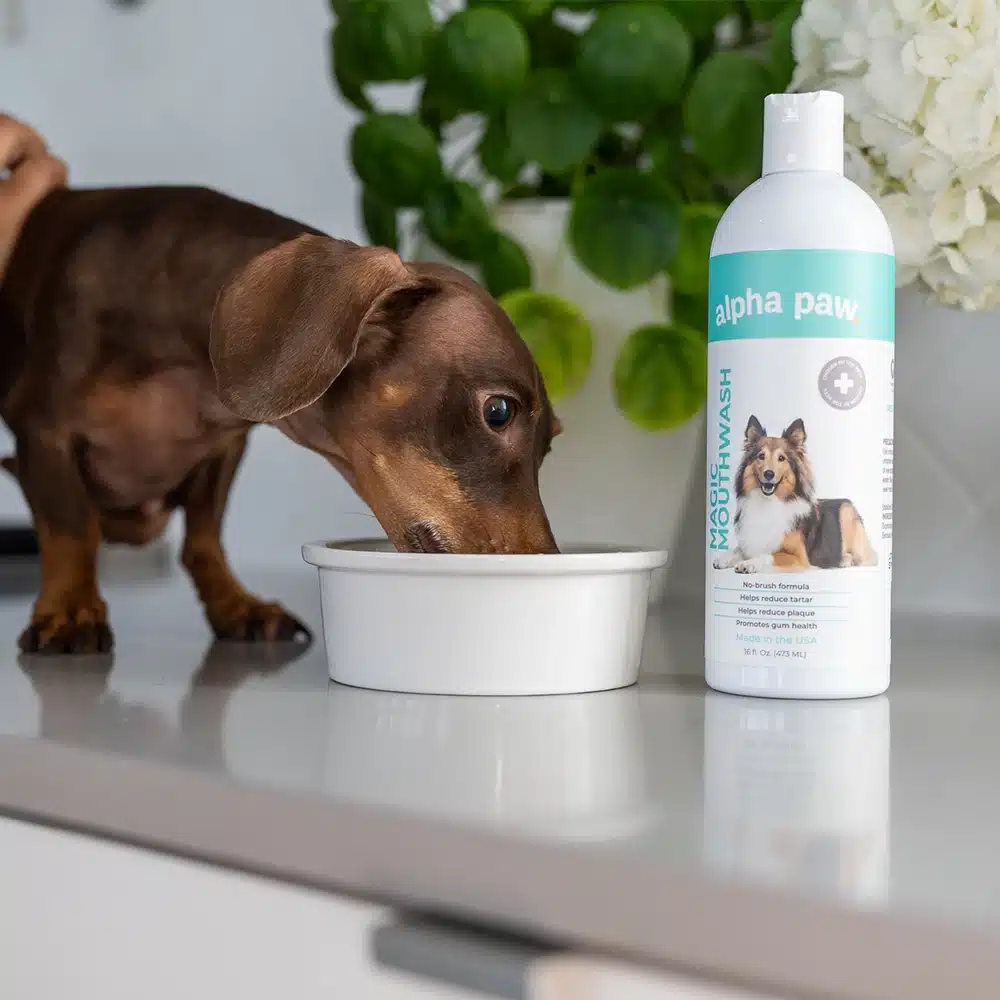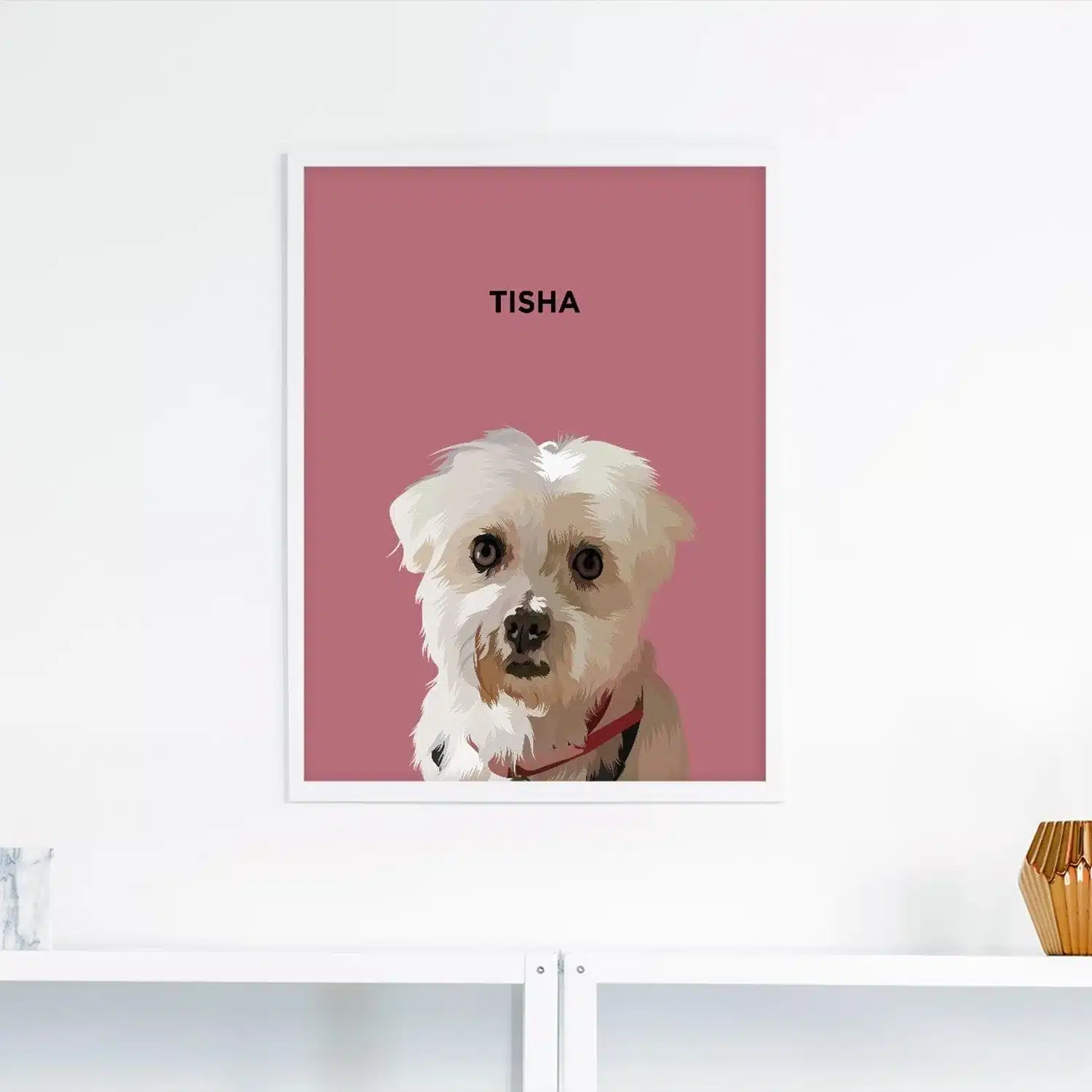80% of dogs develop gum and teeth disease by the time they turn two years old.
However, it is something that all pet parents should be aware of. The oral health of your doxie plays a vital role in their overall wellness level. If you don’t want your pooch to be part of the 80%, there are certain things you can do to prevent it.
How you take care of your dog’s teeth would depend on his age. You can’t treat baby teeth in the same way you treat adult teeth. In this post, let me share with you some of the best tips on how to take care of your dachshund’s teeth.
How To Take Care of Puppy Teeth
Your doxie already has teeth at the time of his birth. They are sharper and more pointed than adult teeth.
Dental care can be done as early as one month. However, you might want to postpone using a toothbrush until your pooch grew his adult teeth. That is around six months of age.
When you start taking care of your puppy’s oral health, you can begin with massaging his gums. You can do this when you’re snuggling or playing with him.
After a few days or weeks, once your dog is comfortable with gum massage, you can then use a soft rubber brush that fits on your fingertip.
The One Thing Pet Owners Regret Not Doing Until It’s Too Late
Is your pet safe?
1 in 3 pets will need emergency veterinary treatment each year and it is estimated a pet receives emergency care every 2.5 seconds in the U.S.
The average cost of treating a broken bone in dogs is $2,700. Cancer treatments? Up to $10,000.
It’s why so many pet owners say their biggest regret isn’t the vet bill—it’s not having pet insurance when they needed it most.
Ask yourself: “If an unexpected $5,000 vet bill hit tomorrow, could I afford it?”
If the answer is no, it’s time to get covered.
Take a look at Lemonade. They have a great app that actually works, they have an instant chatbot that is faster and, dare we say it, friendlier than most companies’ “real” customer service and a quick scroll through Reddit will uncover… people are really vibing with this brand.
So go check them out and take a look. It takes less than a minute.
Use toothpaste that is specially made for dogs. Don’t use human toothpaste as it can be harmful to your pooch. Dog toothpaste may come in various minted flavors such as chicken, beef, and even banana.
How To Take Care of Adult Dog Teeth
In just five to six months, you will begin to see your dog shedding its baby teeth. All of a sudden, your dachshund has his permanent teeth.
Ideally, you need to brush your dog’s teeth once a day. Your goal here is to set a routine. Use a specialized toothbrush for dogs. You will notice that their toothbrush is specially angled. Since dachshunds are small, finger brushes can be enough to reach all teeth.
The best position to brush your dog’s teeth is kneeling in front or to the side of him. Try to check your doxie’s anxiety level. If he isn’t comfortable, you might want to postpone and try again later.
Since you have been massaging and cleaning your dog’s teeth while he is young, he should now be receptive to you for brushing. Lift your doxie’s upper lip and angle your bristles to reach the gum line. Place the brush at a 45-degree angle against the teeth. Do a small circular motion and use gentle pressure.
Brush all teeth, working from one side, to the front, then to the other side. You can either start on the top teeth and then to the bottom teeth. Do this systematically to save time and ensure your dog is unnecessarily agitated.
You may notice slight bleeding, but that’s okay. If bleeding continues, it may indicate gum disease. Talk to your vet for advice.
Dental Tips for your Doxie
By following the tips below, your doxie will have healthy teeth and gums!
- Schedule yearly dental cleaning. Aside from cleaning, your vet can assess any potential problems your dog may have. This serves as a preventive and therapeutic measure at the same time.
- Use dental chews. They are effective in scraping off plaques and tartar. The best part is that your doxie loves dental chews. So, there’s no struggle in giving him dental treats.
- Feed your dog with quality and nutritious food. Nourishing your dog means you are also nourishing his oral health. Poor quality food, unfortunately, will not only harm your dog’s tummy, but also his teeth and gums.
- Provide chew toys to your doxie especially during teething. Chewing is common at this stage as your doxie tries to relive the discomfort caused by his inflamed gums.
- Any mouth disease should not be ignored. Some early signs and symptoms of more serious health problems can be seen in the mouth. For example, smelly and infected mouths may indicate diabetes and kidney disease. Checking the oral cavity of your dog can be a great way to detect medical conditions early on.
Speak to Your Vet
Keeping your dog healthy includes keeping his mouth healthy as well. A healthy oral cavity, teeth, gums, and tongue goes a long way for your dog’s overall quality of life.
If you have any questions, don’t hesitate to speak to your vet. Ask for advice on how to better take care of your doxie’s oral health.

80% of Dogs Develop Arthritis or Joint Pain by 7 Years old – Here’s How to Protect Them
Most of us train our dogs when they are puppies to jump up on furniture. We think it’s harmless (and easier than always lifting them), but for dogs, couches and beds are very high compared to the size of their bodies.
Every time they jump it compresses their back and applies enormous force to their joints.
It’s no wonder that an incredible 80% of dogs experience arthritis or joint pain by only 7 years old.
Luckily, there is a vet-recommended solution.
It’s the PawRamp by Alpha Paw. An adjustable ramp that allows dogs to safely get on and off couches and beds. PawRamp makes joining you in bed or on the couch effortless and fun.
As a bonus, you can use code SAVE35 to get $35 off the PawRamp today.

